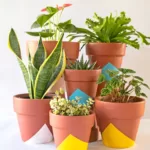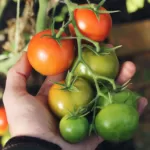Is Beer Good For Plants?
Ah, beer. It’s a staple in many of our lives – whether we’re drinking it with friends on the weekend or simply enjoying the occasional bottle after work. But have you ever considered using beer to help your plants grow? You may be wondering: is beer good for plants?
Well, I’m here to tell you that there is some truth behind this old wives’ tale! Beer contains essential minerals and nutrients that can benefit plant growth and development. Plus, it has plenty of other benefits too – from boosting soil fertility to fighting off pesky pests. So if you’re looking for an inexpensive way to care for your garden, beer might just be the answer!
But before you start pouring out those six-packs into your flower beds, let’s take a closer look at how beer affects plants and what precautions need to be taken when applying this unusual fertilizer.
Why Beer???
Beer isn’t just for happy hour – it has a definition and history that’s worth exploring! Beer is an alcoholic beverage made by fermenting malt, hops, yeast, and water. There are many different types of beers available today depending on their ingredients, production processes, and styles. For example, lager is produced using bottom-fermenting yeast at colder temperatures while ale is fermented with top-fermenting yeasts in warmer conditions. The key ingredients used to make beer are malted barley or wheat, hops which provide the bitterness and flavor profile of the brews, and yeast which causes the fermentation process.
The way beer is brewed also plays a role in its taste; traditional methods may involve boiling grains like barley together with hops before adding yeast during fermentation. Different brewing techniques can create drastically different results – from light pilsners to dark bocks – giving each type of beer its own unique characteristics. With so much variety out there, it’s no wonder why people have been enjoying this delicious drink for centuries! It’s time to explore what else beer brings to the table (or glass). Let’s take a look at some of the nutrients found in beer…
Nutrients Found In Beer
It’s no wonder that beer has been described as ‘liquid gold’ – why else would we be asking if it is good for plants? While the answer may not have a straightforward yes or no, there are some nutrients found in beer which can help with plant growth and health.
First of all, brewers grains contain nitrogen which helps to boost green growth in plants. Nitrogen is essential for healthy leafy vegetables such as spinach and kale, so adding a bit of beer fertilizer can get your vegetable patch off to a great start. Beer also contains phosphorus, an important element for the production of flowers and fruits. Phosphorus helps ensure strong roots systems leading to better nutrient uptake from soil.
Finally, potassium is another key component found in many beers. Potassium aids in photosynthesis by helping move water throughout the plant while helping promote cell division and enlargement. Not only does this lead to improved yield but also bigger blooms on flowering plants! All these substances combined make up what could be considered an effective solution for improving your garden’s overall health when used correctly through beer plant care practices like watering with diluted beer or spraying leaves directly with flat beer. So go ahead- give your plants a sip of liquid gold and watch them grow!
Benefits Of Using Beer For Plants
Believe it or not, beer can actually be good for your plants! It’s true – the nutrients and compounds in beer can help promote healthy plant growth. This is why many gardeners have begun to use beer as a fertilizer option in place of chemical-based fertilizers.
Beer is rich in nitrogen and carbohydrates, both of which are essential to plant growth. Using beer on plants helps them absorb more water, allowing them to stay hydrated even during periods of drought. Additionally, the malt sugars present in beer act as food for beneficial bacteria found naturally in soil that help improve its overall health and texture.
For those who want an organic way to give their plants a boost without worrying about the environmental impact of harsh chemicals, using beer could be just what they need. It’s easy to do; simply pour some flat or stale beer around your plants’ roots and watch how quickly they perk up! Just make sure you don’t overdo it – too much alcohol can damage your plants!
So if you’re looking for an eco-friendly alternative to traditional fertilizers, consider giving your garden a little bit of suds with some brewed goodness from time to time. Who knows? You may find yourself reaping bigger rewards than expected!
How To Use Beer In Gardening
Using beer for gardening sounds pretty cool, doesn’t it? Well, if you really want to give your plants a boost of nutrients, using beer is an option. There are some benefits and risks associated with this type of gardening though.
To start off, the nutrient content in beer can be beneficial for plant growth. The nitrogen content helps stimulate root growth while the sugars help promote more flowers or fruits on the plant. Additionally, since beer is liquid-based, it’s easy to water down and apply directly onto soil or even as foliar spray.
However, there are potential risks involved when applying beer to plants. Beer contains alcohol that could potentially damage delicate foliage and roots if applied too heavily or not diluted enough. It also attracts pests like slugs so extra caution needs to be taken when dealing with these critters. In addition, using too much of any fertilizer (including beer) can burn or kill your plants due to over fertilizing them so moderation is key here!
If you’re still unsure about how safe it is to use beer for gardening, there are many alternatives that offer similar nutritional benefits without risking harm to your plants such as compost tea made from organic matter or fish emulsion fertilizer which provide excellent sources of nitrogen and other essential minerals for healthy plant development. Ultimately, whatever method you choose – make sure you research thoroughly before implementing new methods into your garden!
Potential Risks Of Applying Beer To Plants
Oh boy! When it comes to using beer on plants, the risks truly are astronomical. Not only can beer cause plant damage, but its toxicity levels and potential for creating diseases in plants is enough to make a horticulturist’s hair stand on end! Here’s a quick list of some of the dangers associated with applying beer to plants:
- Beer pollution – The carbohydrates found in most beers can be too much for soil microbiology and consequently lead to an excess of organic pollutants that your poor little plant will have no choice but to absorb.
- Beer staining – Applying beer directly onto leaves may discolor them or eventually lead to mold growth.
- Plant-damage – Too much nitrogen from the hops in beer can actually stunt the growth of your beloved plant companion by burning leaf tips or even killing entire roots.
- Plant diseases – A buildup of sugars left behind after rinsing off any residue could potentially attract other pests or infections like powdery mildew and root rot.
All these factors combine into one big warning sign that you should think twice before dumping suds all over your garden beds (and maybe don’t do it at all). What’s more, if you’re still set on giving your greenery a liquid boost, there must be better alternatives out there…
Alternatives To Using Beer On Plants
Instead of beer, there are some other great options to give your plants a boost. Organic fertilizer is one way you can do this. It provides plenty of nutrition for your plants and it’s safe for the environment too! Compost tea is another excellent choice. This nutrient-rich liquid helps promote healthy root growth in your plants and encourages their natural defenses against pests and diseases. Liquid seaweed is also an option – it contains essential minerals like calcium, iron, and magnesium that help support strong growth and blooming. And lastly, don’t forget about manure tea! Manure tea has all kinds of nutrients that will make your plants thrive including nitrogen, phosphorus, potassium, and more. Plus, its odorless so no need to worry about any unpleasant smells!
These alternatives offer plant owners plenty of ways to nourish their gardens without using sugary beer as a fertilizer substitute. So if you’re looking for something better than beer for your garden’s needs, look no further than these organic solutions! Now let’s take a look at expert advice on care for plants with beer…
Expert Advice On Care For Plants With Beer
So, after exploring the alternatives to using beer on plants, it’s time to look into some expert advice about how to care for your plants with beer. Believe it or not, there is such a thing as “beer-gardening” and you can use beer in various ways when caring for your plants.
First off, you can use beer as a fertilizer! Not only does this provide vital nutrients to your plant but also helps stimulate root growth. And if you’re looking to give those leaves an extra shine, then spraying them with diluted flat beer should do the trick. You can even irrigate your garden with light beers like lagers or ales – just make sure that all of the alcohol has evaporated first!
Lastly, when used properly and sparingly, beer can actually be beneficial for promoting healthy growth and blooming in plants. So if you want lush foliage and beautiful flowers, get creative with your brews! Keep in mind though that too much of anything won’t be good so moderation is key when it comes to beer-care and beer-growth.
Now that we’ve gone over these tips on utilizing beer for gardening purposes, why not put them into practice? After all, they say necessity is the mother of invention so let’s see what kind of results come from employing these methods in our own gardens – just remember: go easy on the hops!
Conclusion
In conclusion, beer is not necessarily the best choice for caring for plants. Although it contains some beneficial nutrients, there are potential risks involved with applying it to your garden that can cause damage. Additionally, there are plenty of alternative methods available to nourish and protect your plants without using beer.
It’s important to remember that any gardening practice should be done with caution and care; this includes using beer on your plants. As a gardener, I suggest consulting an expert before trying anything new in order to ensure your plants are receiving all necessary nutrients needed for healthy growth.
Surprisingly, one study has proven that nearly 15% of Americans admit to having used beer as fertilizer at least once! This statistic clearly shows how popular this method is among amateur gardeners who may think they’re doing something good for their plants. However, understanding the pros and cons of using beer on plants is key to making sure you provide them with a safe and nurturing environment.




